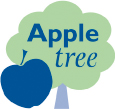Finding enough content to write is always a troubling problem for bloggers. I constantly read on forums bloggers asking for inspiration about what to put into their blogs, especially since there is that constant nagging in their minds that they need to be consistent and frequent in their postings. This is particularly prominent if you have advertising and affiliates on your blog, as you rely on a constant stream of visitors to make such applications pay their way.
I suppose it doesn’t help to say the more you post, the easier it becomes. It’s all down to practising, persistence and perseverance. Get into the habit of putting down your thoughts, even if it’s in draft form, to develop later into full-blown posts. Diligent bloggers may have plenty of potential posts in draft, waiting for that final finish.
Look around you for inspiration, there is plenty of ‘post fodder’ about if you know where to look. Look at the emails in your in- and out-box, especially the ones you write in reply. This is an excellent source of your expertise. If you are a prolific writer elsewhere, refer to past articles that you’ve written, and there is no reason why you can’t rewrite old stuff that may have got out of date, may have had more recent developments or needs a more prominent boost.
Refer to the internet for information: subscribe to Google Alerts with certain keywords that interest you or are relevant to your business, and you will get plenty of posts and articles other people have written. Use these not only to learn more about your industry, but rewrite these topics in your own style or in your own point of view, agreeing or disagreeing, adding to the subject matter or explaining a point further. This is not plagarism if you make your work totally different from the original.
Remember things that have been said or you’ve heard somewhere, such as networking events, or even when you are meeting your clients: ask them for ideas, or question them to get their point of view. They may ask for explanations on certain subjects, and their question with your reply could easily be adapted as a post.
It’s all due to you acquiring the right sort of blogging mind-set. This may sound pretentious, but once you do train your brain to start looking for posting material wherever it goes, content will start springing out of the woodwork! Start thinking in that frame of mind, and you might be pleasantly surprised…
Filed under: Blogs, Copywriting, Interaction, Social Media | Tagged: advertising and affiliates, blog content, bloggers, blogging, blogging mind-set, blogs, Google Analytics, inspiration, past articles, posts, Questions and Answers, rewrite old topics | Leave a comment »




How links benefit blogs
Alice
Blogs thrive on links. In fact, blogs are full of links, contained mostly in the content of the sidebars, both internal (navigation around the blog) and external (destination exits or entry from referral sites). You can tell which are links on this blog because they are underlined and your cursor changes when you mouse over them.
Think of links as doors or portals for gaining access to elsewhere. You can see this is how search engine spiders travel through, to and from blogs and websites, and humans can too. Because links are interactive, they both allow access and attract activity to and within the blog. The power of links are such that connections with the right kind of high-ranking website or blog can boost your rankings in the search engines, tags (keywords) interact with what is up-to-date within the search engines, categories aid archiving as well as search engine optimisation, and each post’s permalink is used with subscriptions to search engine readers, and RSS feeds to social networking sites, blogs and other resources.
A blog’s links come in many guises: the blog’s domain name, the post’s headline which becomes a permalink, contextual links (keyphrases linked to relevant destinations) within posts, the tags (keywords) and categories (topics) after the post, comments (links to the commenters), the blogroll or list of links to recommended websites, and RSS feeding your new material to a subscribed audience.
Filed under: Blogs, Interaction, Online Marketing, SEO | Tagged: blog content, blogrolls, blogs, categories, comments, contextual links, domain name, interactive, keywords, links, navigation, permalink, portals, RSS feeds, search engine spiders, tags, topics | Leave a comment »